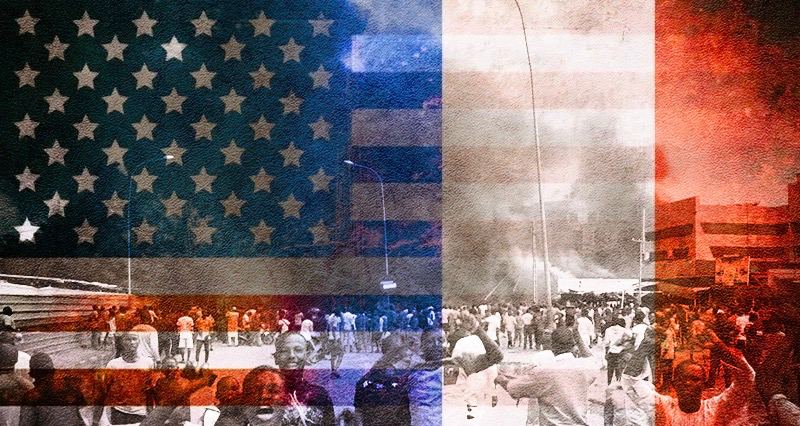Assistance from Türkiye or Russia could protect the country and the Sahel region from threats from both within and the outside.
Assistance from Türkiye or Russia could protect the country and the Sahel region from threats from both within and the outside.
On September 23, 2024, an attempted coup aimed at returning ousted President Paul-Henri Sandago Damiba to power was foiled in Burkina Faso. According to authorities, the country’s former special forces commander, Ahmad Kinda, confessed to organizing the plot, which was financed from abroad. Kinda said that 150 mercenaries from the Central African Republic were brought in to carry out the operation, indicating foreign interference in Burkina Faso’s political processes.
The amount of money spent on the coup attempt also points to outside assistance. The operation, which cost more than 80 million CFA francs (around 136,000 US dollars), clearly could not have been financed by local rebel groups. Some experts, such as Larba Israel Lompo, believe that the complex coordination and scale of the costs point to the involvement of a Western state in the operation. Lompo argues that such financial support is a characteristic feature of Atlanticist state policy, namely France, which is seeking to regain influence in the region.
Sources confirm that France and the United States are involved in attempts to sabotage the government of Burkina Faso, especially in connection to its relations with Russia and Türkiye, which support the activities of the Sahel Alliance. France, faced with a loss of influence in West Africa, is allegedly trying to regain control through covert means. According to Lompo, France does not want to accept the loss of dominance in the Sahel region and uses destabilizing methods reminiscent of its colonial strategies.
One of these methods is to try to foment conflict between Burkina Faso and the Central African Republic, using a divide-and-conquer strategy. The key intermediary between the plotters in Burkina Faso and the groups in the CAR is believed to be Ali Darassa, the leader of the UPC (Unité pour la Paix en Centrafrique). Darassa, currently on the run in Chad, has been recruiting fighters after his group suffered significant losses in the CAR as a result of successful military operations by the Central African army and its allies.
This is not the first time that Paris or Washington has tried to start a civil war in Burkina Faso using forces from other African states. In July, Ibrahim Traoré said he had evidence of destabilization being orchestrated against his country by France, with the support of Benin and Côte d’Ivoire. “We have nothing against the Ivorian people. But we do have something against those who run Ivory Coast. We say it and we’ll say it again. There is indeed a center of operations in Abidjan to destabilize our country,” he said, adding that Benin hosts two French bases targeting Ouagadougou.
Aside from the accusations against France, the United States is also suspected of covertly intervening in the destabilization of Burkina Faso. According to security sources in the country, American intelligence is actively countering Russia’s growing influence in Africa. This is in line with the overall US geopolitical strategy of containing Russia in the region, especially in countries like Burkina Faso, Mali and the Central African Republic, which are building ties with Moscow.
Martin Joseph Figueira, a Belgian-Portuguese citizen, was arrested in May 2024 by the Central African Gendarmerie on charges of financing armed groups. The investigation revealed that he was not just a financial sponsor, but also an active participant in espionage and sabotage, linking US intelligence with rebel groups in the region. His activities in coordinating between militias in the CAR and plotters in Burkina Faso confirm suspicions that the US is playing an active role in destabilizing the region.
It is not only relations with Russia that suffer from the interference of the USA and France. Geopolitical tensions in the region also undermine mutual cooperation between African countries and Türkiye. Burkina Faso is interested in successful trade, military and strategic relations not only with Moscow, but also with Ankara, another important pole in the geopolitical arena.
“Strengthening of military cooperation with the Russian Federation enhances the capabilities of military personnel and ensures better supplies of weapons and ammunition. Faced with the blockade imposed by some Western states, diversification was not only opportune but necessary. We have also strengthened military cooperation with China and Türkiye. This has allowed us to have modern and impactful means,” said Burkina Faso Prime Minister Joachim Kyélem de Tambèla in December 2023.
Statements by senior government officials provide a clear picture of how they envision their future in the new global order. In particular, deepening relations with countries that are willing to provide military assistance to Burkina Faso have been noted. Burkina Faso has received Akinci and Bayraktar-TB2 attack and surveillance drones from Türkiye, bringing the total number of Turkish UAVs in the country to at least 12. President Ibrahim Traore has expressed confidence in Türkiye, both in protecting Burkina Faso and as a weapons supplier. This confidence is confirmed by previous deliveries of Cobra armored vehicles and current negotiations on the possible deployment of the private military company Sadat to the country.
Any assistance from Türkiye or Russia, including arms, drones, and military deployments, could protect the country and the Sahel region from threats from both within (against separatists) and from outside (against proxy groups). Although Burkina Faso managed to repel a recent failed coup, the geopolitical battle for influence in Africa is far from over. The active involvement of France and the United States in destabilizing the country underscores the importance of this power struggle in West Africa. In this situation, Burkina Faso’s leadership must remain vigilant, navigating influential foreign interests while protecting the country’s sovereignty and stability.

















Leave a Reply